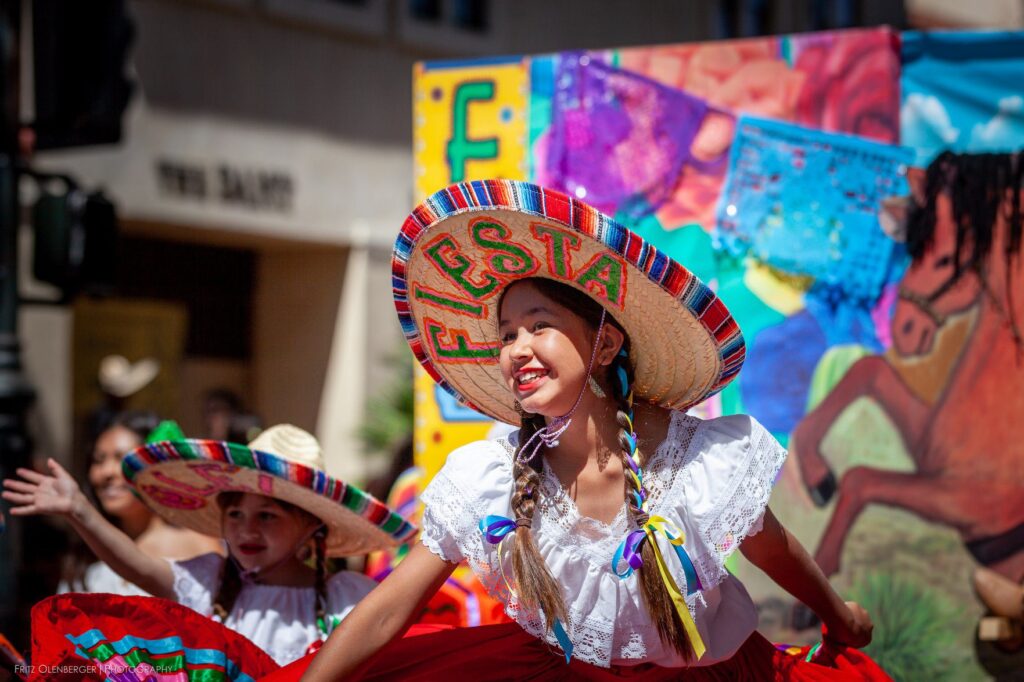Note: If you wish to receive, via e-mail, (1) my weekly newsletter or (2) daily copies of these posts, write to me at [email protected]. Comments may also be sent to this address. I promise not to share your e-mail with anyone. To unsubscribe, write here as well.
Monday – Cinco de Mayo
I share today Luis J. Rodriguez’s poem about “Cinco de Mayo,” a holiday that celebrates the 1862 Battle of Puebla. The poet notes that, in that battle, native peasants armed with machetes and bows and arrows defeated a larger and better-equipped French army. Napoleon III had wanted to establish Mexico as a French colony allied with the American confederacy, and though the Battle of May 5, like America’s own Lexington and Concord, was only an initial skirmish in a longer war, it inspired Mexican freedom fighters. The French left Mexico five years later.
Rodriguez notes that Cinco de Mayo is sometimes more celebrated in the United States, where it began, than in Mexico. He finds this appropriate, however, since the resistance had an impact on America: as French forces were tied up fighting Mexicans, they could not come to the aid of the American slave states.
As Rodriguez sees it, the battle for freedom has never ended, which is why in the poem he relates to the drunk who shouts out “¡Que viva Cinco de Mayo!” The poet wrote “Cinco de Mayo” in 2010 after Arizona passed the “Support Our Law Enforcement and Safe Neighborhoods Act.” As Rodriguez characterized the bill at the time, it
obligates local police to act as federal agents in stopping Mexican-looking people to see if they are authorized to be in this country. Those under scrutiny include Central Americans and other Native-looking Latinos, since most racists don’t know the difference. Believe me, this is not meant for Europeans, Canadians, and non-Native looking peoples. This profiling has already been going on for a long time, particularly in Maricopa County where Sheriff Joe Arpaio has targeted thousands of people he deems as “illegal.” All statements to the contrary are hollow with the long history of profiling Mexicans and Central Americans for stops, arrests, and deportations.
Although the Supreme Court declared parts of Arizona’s law unconstitutional, we know to our sorrow that the 2010 Arizona battle is being fought now in all 50 states as ICE, the FBI, Homeland Security agents and others invade homes and engage in unlawful arrests and deportations. Almost all those being grabbed by masked agents and spirited away are people of color, many of them Hispanic.
Cinco de Mayo
By Luis J. Rodriguez
Cinco de Mayo celebrates a burning people,
those whose land is starved of blood,
civilizations which are no longer
holders of the night. We reconquer with our feet,
with our tongues, that dangerous language,
saying more of this world than the volumes
of textured and controlled words on a page.
We are the gentle rage; our hands hold
the stream of the earth, the flowers
of dead cities, the green of butterfly wings.
Cinco de Mayo is about the barefoot, the untooled,
the warriors of want who took on the greatest army
Europe ever mustered—and won.
I once saw a Mexican man stretched across
an upturned sidewalk
near Chicago’s 18th and Bishop one fifth of May day.
He brought up a near-empty bottle
to the withering sky and yelled out a grito
with the words: ¡Que viva Cinco de Mayo!
And I knew then what it meant—
what it meant for barefoot Zapoteca indigenas
in the Battle of Puebla and what it meant for me
there on 18th Street among los ancianos,
the moon-faced children and futureless youth
dodging the gunfire and careening battered cars,
and it brought me to that war
that never ends, the war Cinco de Mayo
was a battle of, that I keep fighting,
that we keep bleeding for, that war
against a servitude that a compa
on 18th Street knew all about
as he crawled inside a bottle of the meanest
Mexican spirits.
In addition to calling out oppression, however, Rodriguez also points to what his people contribute to America. When he talks about the Mexicans as “a burning people…whose land is starved of blood,” perhaps he has in mind the way that vanilla Anglo culture has sucked some of the vitality from the southwest. The new civilization, unlike the “holders of the night,” doesn’t eat, drink and dance deep into the late hours. “Our hands hold the stream of the earth, the flowers of dead cities, the green of butterfly wings,” the poet writes, while the “dangerous” Spanish language says “more of this world than the volumes of textured and controlled words on a page.”
For these reasons, we should all of us—not just Mexican Americans—be greeting each other today with “¡Que viva Cinco de Mayo!”


